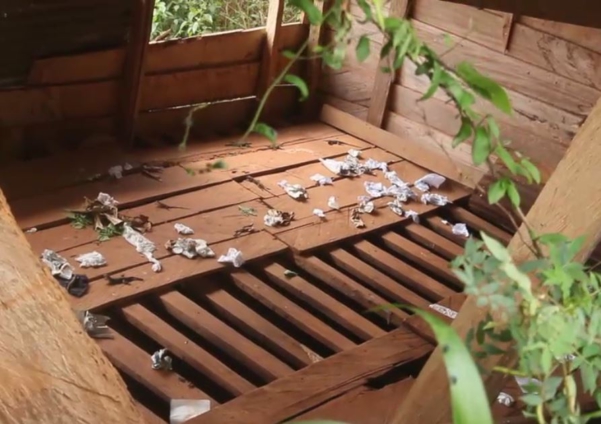Lack of external support to end open defecation in the Ashanti Region is the biggest challenge facing environmental officers.
Out of the thousands of communities in the region, only seven in Sekyere East and Asante Akin North have been declared open-defecation free through community led total sanitation programme (CLTS) between 2018 and 2020.
Five communities in the Sekyere East district were certified and declared open defecation free between April 2018 and January 2019. The communities include; Koforidua, Anunuso, Obaapaninkrom, Amongoase, and Nkwadum.
In 2020, two communities in the Asante Akim South district, Mankala and Bretuokrom, were also declared ODF through the World vision sponsored CLTS.
While the region is not the worst in open defecation, the practice is a cause for concern.
Regional environmental officer, Don Awantungo laments, there is external support to initiate programmes that lead to the declaration of many communities ODF.
"Some years back, there was no house in Kumasi that didn't have a toilet. Now with time it became increasingly difficult to manage those bucket latrine and it was faced out. Then the gap, a big gap was created.
Mr Awantungo says, when the bucket latrine was faced out, there was no immediate plan to replace it. And so a huge gap has been created, so everybody resorted to the use of a public toilet.
"It became very terrible. You and I know so people have to resort to open defecation and that is why we now see open defecation in the communities." He says.
2014 KMA reports revealed five percent of the population in Greater Kumasi engage in open defecation. Thirty-nine percent rely on public toilets, while 56 percent have some form of decent toilet facilities.
Mr Awantungo says there should be cost-effective technology to be able to end open defecation.
"For us to to increase the number of toilets, what we need to do is to look for a cost-effective and simple to install type of technology that everybody can easily access and put in the houses just like the bucket latrine used to be."
The regional environmental officer says local assemblies are working with chiefs to achieve targets of Open Defecation Free communities.
He mentions that, the Ashanti regional coordinating Council recently inaugurated regional integrated coordinating committee for sanitation with the support of world vision Ghana to end open defecation.
Acting Ashanti Regional Coordinating Director, Joseph Donkor, says urbanization and population growth are the major causes of open defecation.
He says institutional capacities are being strengthened to help improve on sanitation.
A Media Coalition Against Open Defecation, M-CODe has been launched in the region to help end the menace.
The National Convener of M-CODe, Emmanuel Addai, takes the new members through the Coalition's history, structure, vision, and campaign activities.
Mr Addai appeals to corporate and donor agencies to support the work of the M-CODe to help fight open defecation.
Latest Stories
-
Fuel prices to fall from June 16 due to postponement of GH¢1.0 levy
39 minutes -
PassionAir assures passengers after Kumasi–Accra flight encounters turbulence
2 hours -
Fatherhood Beyond Finances: Two drivers inspire a rethink on presence, bonding and recognition
2 hours -
President Mahama urges protection of fuel price gains amid Middle East tensions
2 hours -
Republic of Rogues: Where Thieves Have Heads and the System Has None
3 hours -
Musah Mohammed donates jerseys and footballs to youth teams in Nkawkaw
4 hours -
Omane Boamah urges youth to persevere, recounts dramatic admission struggle at POJOSS
4 hours -
Minority unhappy over suspension of fuel levy, demands full repeal
4 hours -
Helicopter carrying Hindu pilgrims crashes in India, killing seven people
4 hours -
Council of State member urges Ghana to localise global solutions for youth employment
4 hours -
CAS overturns FIFA ruling and awards Right to Dream development fees from Ernest Nuamah’s transfer
5 hours -
Hitz Praise Zone: Nii Noi launches new gospel show on Hitz FM
5 hours -
BOAD reaffirms commitment to energy transition and sustainable agriculture in West Africa
6 hours -
10 kinds of women who have denied men the joy of fatherhood
7 hours -
A father’s hurdles caring for son with Sickle Cell disease – John Dzido shares a fraction
7 hours

